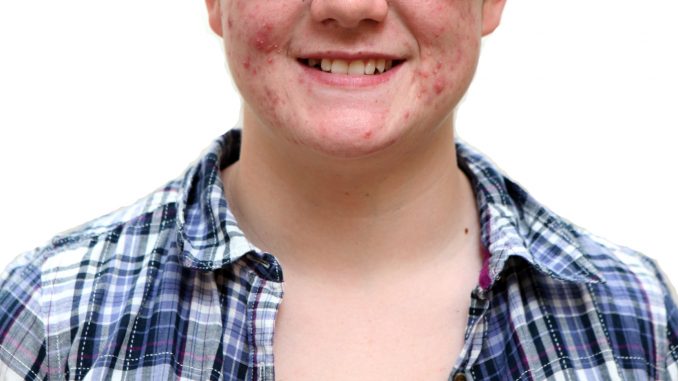
 I follow presidential elections the same way some people follow sports. I scout my favorites early on and make ridiculous predictions in the beginning of the season. I get all decked out in merchandise: T-shirts, signs in the windows and stickers on my laptop. I spend game days, or more accurately debate nights, in front of the television with a bowl of popcorn. I fight with Republicans the way Red Sox fans fight with Yankees fans. CNN and MSNBC are my ESPN. And last week, at 20 years old and voting in my first presidential election, I felt like a minor league player getting called up to the majors.
I follow presidential elections the same way some people follow sports. I scout my favorites early on and make ridiculous predictions in the beginning of the season. I get all decked out in merchandise: T-shirts, signs in the windows and stickers on my laptop. I spend game days, or more accurately debate nights, in front of the television with a bowl of popcorn. I fight with Republicans the way Red Sox fans fight with Yankees fans. CNN and MSNBC are my ESPN. And last week, at 20 years old and voting in my first presidential election, I felt like a minor league player getting called up to the majors.
Honestly, the only way I can describe how I felt voting for President Barack Obama is honored. I am honored that, in my first presidential election, I voted for someone that I felt so strongly about. I was honored that in my first presidential election, I voted for someone who cares about me as a woman. I voted for someone who made sure that I am granted equal pay and that I have affordable and accessible healthcare. I was honored that I voted for someone who cares about me as a student, who made it easier for me to pay for my own education. Most importantly, I was honored that in my first presidential election, I voted for someone who cares about me as a gay American.
President Obama took a big risk in May when he announced that he supports same-sex marriage. Taking 20 minutes out of my day to vote was the least I could do to thank him.
Sophomore English major Maddie Luebbert spent election night, like myself and like most voters, I presume, anxiously awaiting the results, refreshing CNN and the Huffington Post’s electoral maps.
“Once I couldn’t stand sitting in my room by myself agonizing over it, I then went and sat with my friends and agonized over it,” said Luebbert, who listed LGBT issues as the most important factor for her going into the election, along with women’s rights and education. “And eventually I went to my girlfriend’s house and agonized over it.”
At the end of the day, all that agonizing seemed to be for naught. Nov. 6 proved to be a historic night for the LGBT community.
Along with Obama’s re-election, three states voted to legalize same-sex marriage, the first time ever such legislation was approved by voters.
Additionally, Wisconsin’s Tammy Baldwin became the first openly gay U.S. Senator and right here in Pennsylvania, we elected our first openly gay state legislator, Brian Sims.
This is important. This is really important. This symbolizes a huge change in American politics. For the longest time, anti-gay politicians have defended their stances by claiming that Americans simply don’t want gay rights. And for the longest time, Americans have proved them right. Marriage equality votes have shown up on state ballots more than 30 times and they have been shot down every single time — until last week.
Last week, Maine, Marlyand and Washington voted on marriage equality and every state voted in favor of it. In Minnesota, voters shot down an amendment to ban the state’s recognition of same-sex marriages.
What was the difference this time? Well, us.
Early reports estimate that at least 49 percent of registered voters under the age of 30 voted. That’s nearly 23 million young Americans.
“It’s not just us in the street yelling anymore. It’s us in the voting booths and us in politics actually having a say,” Luebbert, one of those 23 million young Americans, said. “I think that’s amazing.”
It’s no coincidence that LGBT issues made so many advancements the same year that so many young voters turned out to vote.
Attitudes on marriage equality are changing rapidly and our generation is leading the charge.
A CNN poll conducted in May reported that 73 percent of 18 to 34-year-olds asked believe that same-sex marriage should be legal and 55 percent said they “feel strongly” about it.
“I think this is the best time to be a young gay person in America,” Luebbert said. “For us to graduate in the next four years and get jobs and get married, there’s a bright future for us. Maybe I’ll be able to teach and not have to hide my personal life for fear of getting fired.”
“Or maybe I’ll be able to marry my girlfriend in a reasonable amount of time, when we’re ready, not when it’s 20 years later and we can,” Luebbert added. “It’ll be something that’s an actual option and it’s a realistic option. It’s not just a pipe dream anymore.”
Sara Patterson can be reached at sara.patterson@temple.edu.



Proud! Proud! Proud!!!